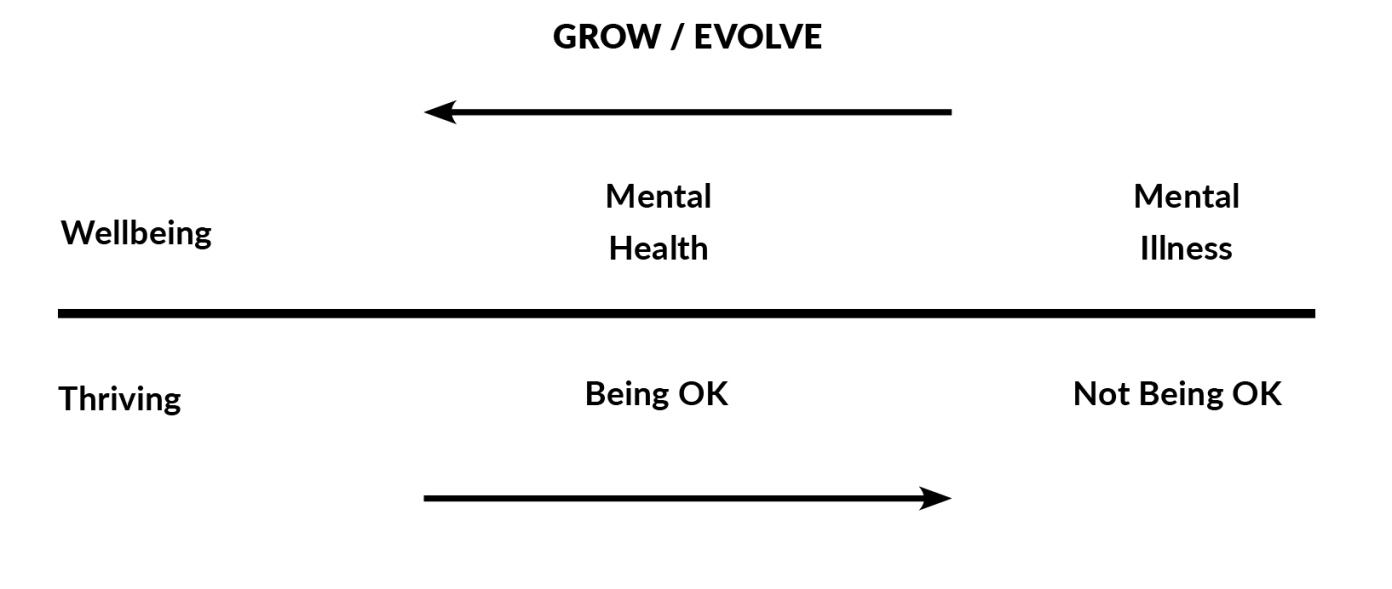
With the likes of Prince William and the Royal Family raising awareness of mental health through their initiative ‘Heads together’, and celebrities speaking out about mental health the subject is being normalised and more and more people are aware and talking about mental health.
Companies are concerned about their peoples mental health and there are mental health awards up for grabs. All of which is increasing the awareness of the importance of mental health.
But what are we actually referring to when we talk about mental health? Is it anxiety, depression, mental breakdowns or is it wellbeing?
The term ‘mental health’ is often used when talking about mental illness or psychological difficulties and struggles which perhaps is the reason for the stigma that is still surrounding it at times.
Yet the term ‘mental health’ refers to ‘the absence of illness of the mind’ and refers to a person that is ‘able to cope with the normal stresses of life, that can work productively and fruitfully.’
This sounds positive to me, but let’s take a look at it more closely.
If we were to break down the broad area the term mental health is referring to, we could view it as a scale that each person moves along (on either sides) throughout life.
Diagram
One side of the spectrum is mental illness, which includes clinical diagnosis and the other end of the scale is complete wellbeing, peace of mind and happiness.
In between is a whole array of being-states which constantly change either significantly or minutely, from year to year, month to month, day to day or moment to moment.
Every human being experiences what they mentally process form one moment to the next which is subject to constant and never ending change.
You may go from a low feeling state to a high feeling state within moments, which is perfectly exemplified and easily observed in the mood shifts of young children.
A child can go from complete frustration and anger from not getting an ice cream, to total excitement and joy as their attention shifts to something else interesting such as a playground, all in a moments time. This displays perfect mental health and wellbeing that each and every person is born with and has the capacity to access.
Throughout a person’s life it may be more difficult to access mental wellbeing at times and depending on what stage of the scale the person is on, interventions may differ and can range from clinical support when on the mental ill health side of the scale, to coaching or other personal development interventions when on the wellbeing end of the scale.
Mental Health, Wellbeing or whatever you may want to call it is a lifelong journey that everyone is taking whether you are aware of it or not.
You may be proactive in your approach to stay on the wellbeing side or working on restoring access to your natural wellbeing, either way, it is an opportunity to grow and evolve. (You choose.)
‘The definition of insanity is doing the same thing over and over again, but expecting different results. ‘ - Albert Einstein
I am a firm believer in supporting people to develop ways to access and maintain their wellbeing and enable them to continuously grow and evolve to live their best life.
It is each persons own responsibility to take care of their mental wellbeing and it is encouraging to see so many employers choosing to support their peoples mental wellbeing in providing access to resources to create positive change.
Shifting our perspective on this subject to seeing it as an opportunity is fundamental to creating a better life, a better workforce, a better community and a better world.
 RSS Feed
RSS Feed